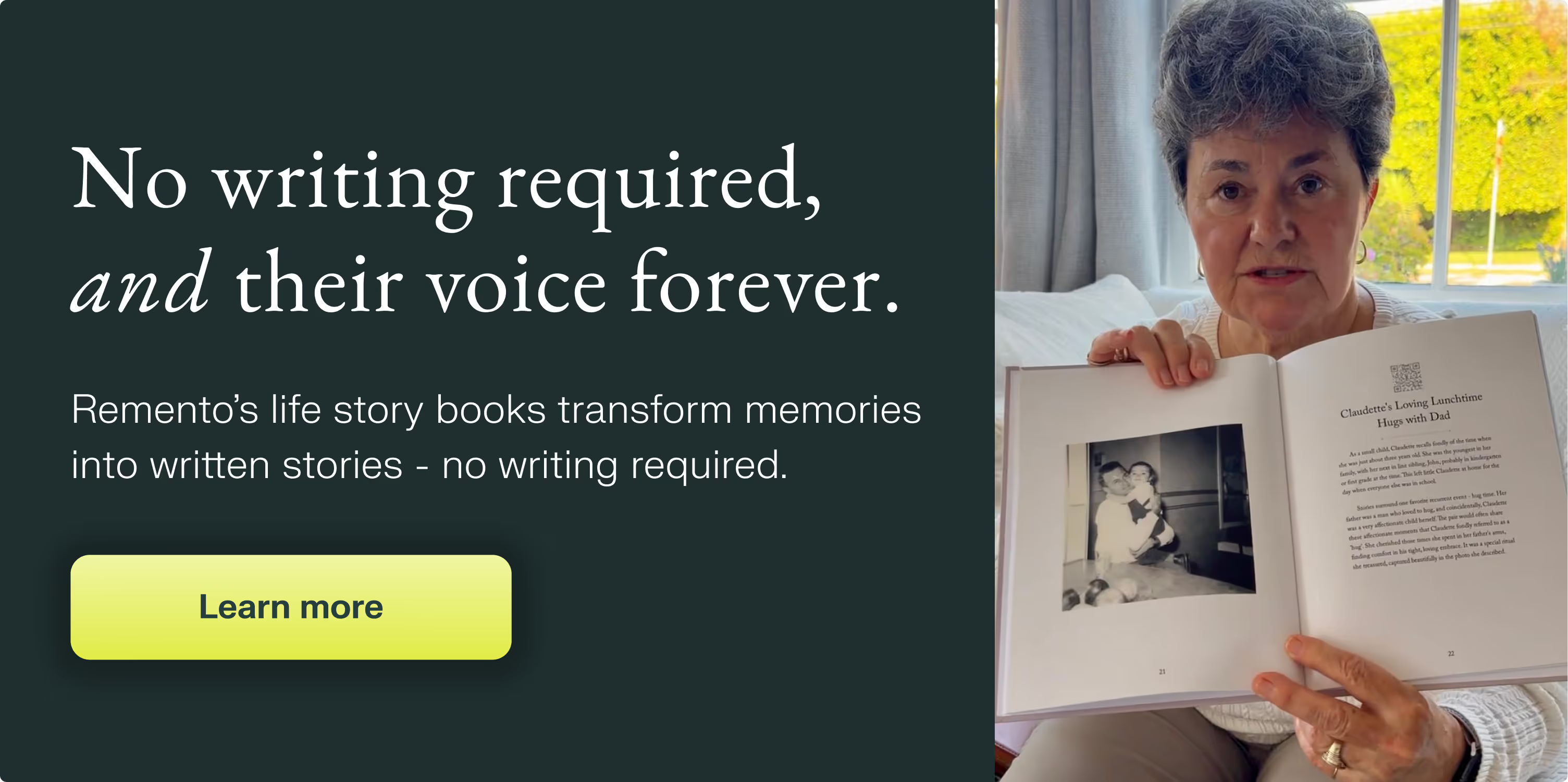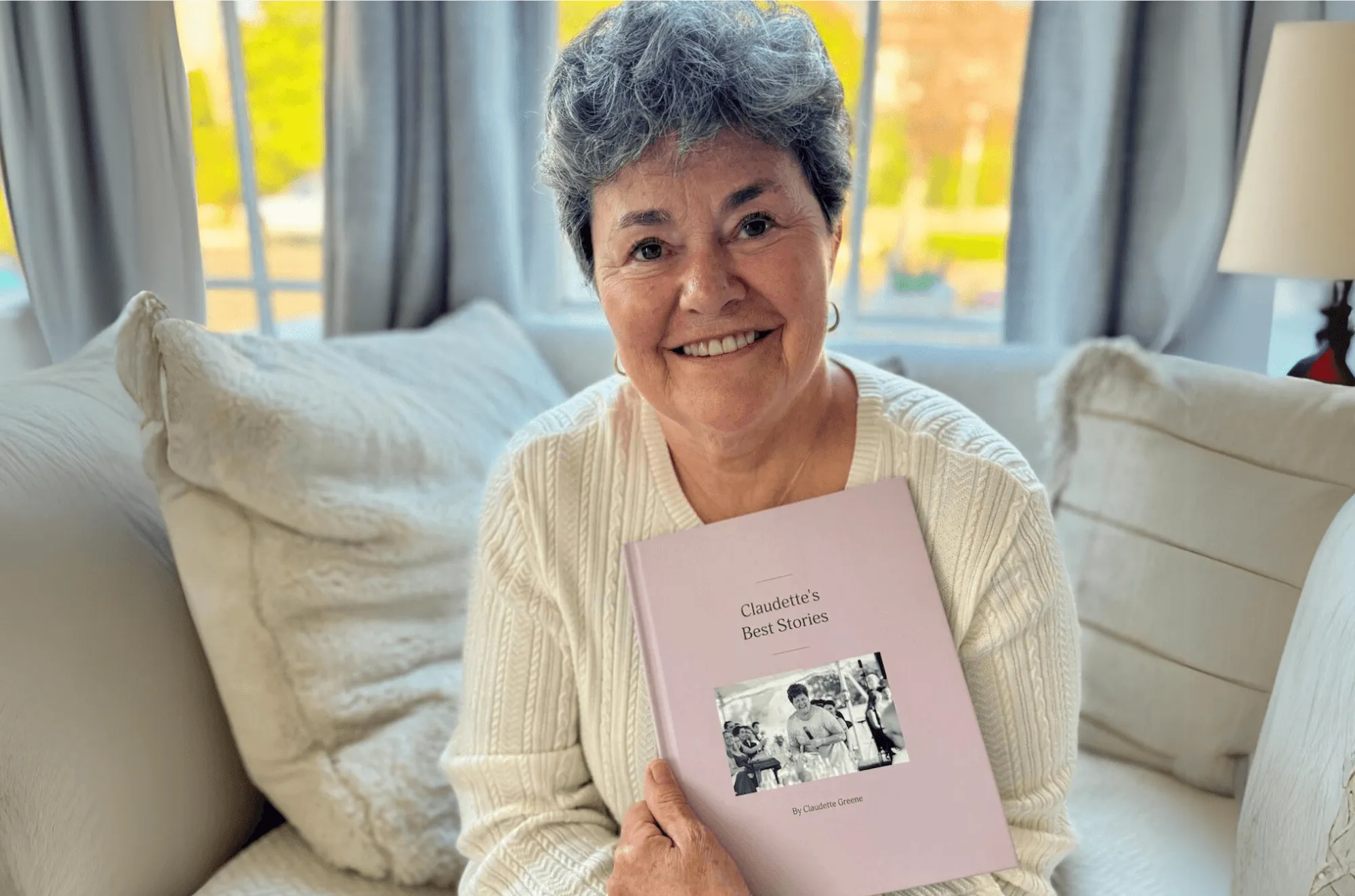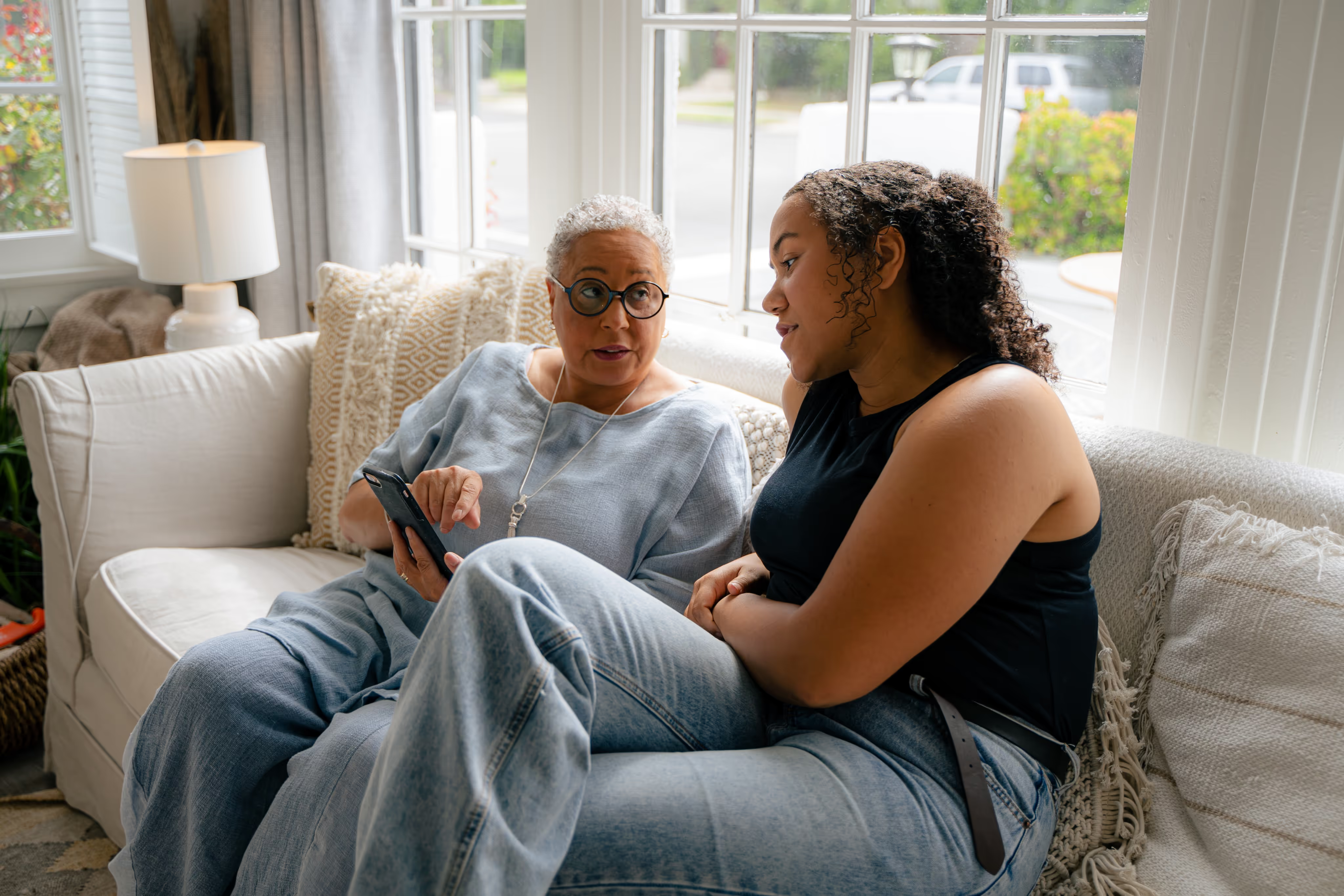Guaranteed to teach you things you never knew.
How to Unlock the Benefits of Storytelling For People with Dementia
Five tips on how to connect with people suffering from dementia, Alzheimer’s and other cognitive impairments through intentional conversation.
So much of our identity is tied to our past experiences. In many ways, who we are is the story of where we have been, what we have done, and what we have experienced. Passing this knowledge onward gives greater meaning to the experiences of our children, our family, and our friends. This sharing of cultural knowledge and personal history is a gift for the both storyteller and those who choose to listen.
But what if that storyteller is facing the onset of Alzheimer’s, dementia, or another cognitive impairment? How do we uncover family history, the stories of our ancestors, or even our own origins when the key to the knowledge keeper’s vault is getting harder to find? How can we as caregivers help those we love hold on to these precious memories? Through intentional conversation and active listening, you can discover the threads of family history you never knew while expressing love through the gifts of time and attention. All you need is a little preparation and guidance.
Legendary race car driver Bobby Unser famously said, “Success is where preparation and opportunity meet.” This quote is particularly relevant when considering a conversation or series of conversations with a loved one with a cognitive impairment. The more you can prepare in advance, the better equipped you’ll be to take advantage of opportunities as they arise.
Ask specific questions with helpful details
When thinking about the questions you’ll ask, we recommend starting with young adulthood and being as specific as possible. When dementia or cognitive impairment affects memory, early life memories tend to be better preserved than recent ones. Memories from childhood, teenage years, and early adulthood will be better preserved than recent memories.

It may be hard for your loved one to access memories without some help “honing in” on the specific events. If you’re using the Remento app, customize the questions in advance with relevant details. For example, the pre-written prompt might be generic like "Tell me about your room growing up." But if you know where the house was located, you can customize the question include that detail. “When you lived in the house on Hammerly Boulevard in Houston, Texas, did you have your own room?” Guide them back to the time and place and then use follow-up questions to uncover more stories. “What kind of furniture did you have? How did you decorate it?"
Use photos, music, or heirlooms to unlock recollections
Photos and music are very powerful triggers for memory recollection. Show them old family photos and ask about what’s shown, who the people were, what their relationships were like. Look up what songs were popular when your loved one was a teenager and play them. Even better, ask them what their favorite songs are, play them, and then ask what memories and people come to mind - "When did you first hear this? Why is it special to you? What were you doing when you first heard it?" Research what major news events or moments in pop culture (music, movies, books) they experienced during this time period.
Choose the right time and place
When and where will your conversation take place? Many individuals with cognitive impairments have trouble focusing in the evening hours, so morning or mid-day may be best. Choose a time that's quiet, when you won't be interrupted, and that aligns with the person’s most alert time of day. If you are meeting in a shared facility, find out when meals or medication are typically given so you can avoid interrupting important routines.
Make sure your loved one is seated comfortably, with water on hand and anything they might need - like their glasses, hearing aids, extra pillows, or even a blanket. You may even want to start the conversation with a gift or sweets to ensure they know this is a safe place and you are coming with a spirit of appreciation for their time.
Pay attention and pace yourself
It’s important to pay close attention to what your loved one is saying so you can help redirect the conversation if needed or ask helpful follow-up questions. Eye contact and active listening are key. Sit facing them, either side by side or across from each other. Look for signals in body language. If they show signs of fatigue or stress, take a break or come back another day. Ask follow up questions in a calm voice, but avoid interrogating or pressuring the person.
Keep interview sessions short but allow plenty of time for the person to think about and answer your question. Don't be afraid of pauses. Pace yourself and let things go if they aren’t productive. If it becomes apparent that a particular topic or line of questioning isn’t going anywhere, try another topic. Memory-science research shows that once a topic is activated in the brain, your mind works on it offline - when you’re not thinking about it - even during sleep. Revisiting a topic in a future conversation can open up new information.
It is better to collect stories over several short sessions than one long one. You may want to spread the conversation out over time, asking five questions in a sitting to keep it from feeling overwhelming.
Record the experience
If you live with or have frequent access to your loved one, keep your phone handy to capture spontaneous stories and conversations as they occur. You may want to keep a running list of questions or topics you want to know more about for when opportunities arise.
Remento offers a special set of prompts for conversations with people suffering from dementia. We recommend customizing these questions with as much detail as you can, adding photos if you have them, and spreading the conversation out over time.
If you’re looking for more inspiration, check out Krystle’s experience using Remento to uncover family stories and history through conversations with a relative suffering from dementia and Alzheimer’s.

Next up: Why Your Brain Loves a Great Story
Remento does not provide medical advice. The information provided in this article is for informational purposes only and not intended to be a substitute for professional medical advice, diagnosis, or treatment. Always seek the advice of your physician or other qualified healthcare provider with any questions you may have regarding a medical condition or treatment.

Their stories, forever at your fingertips
Remento’s life story books turn a parent or grandparent’s memories of the past into a keepsake book for the future - no writing required.
Capture priceless family memories today
Join the thousands of families using Remento to preserve family history, all without writing a word.
.avif)
